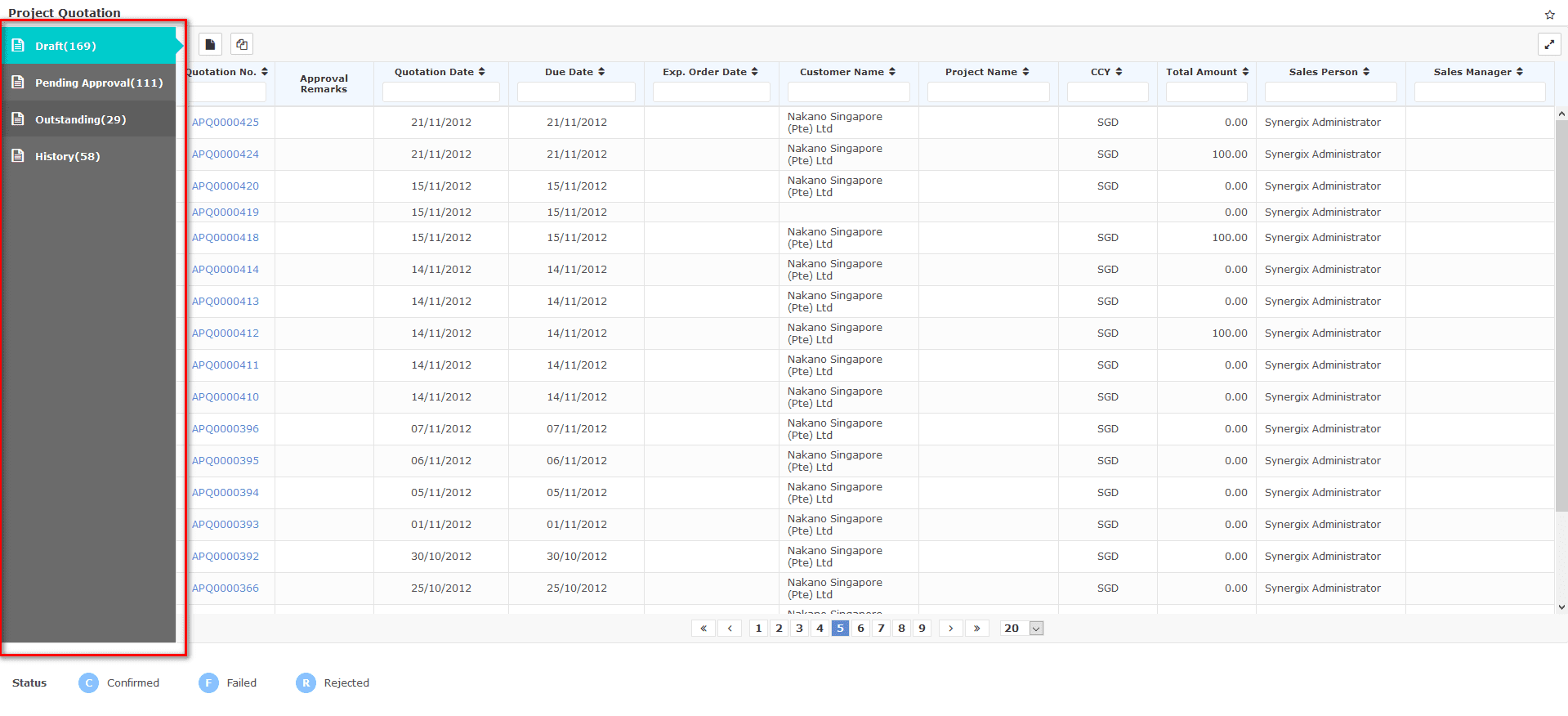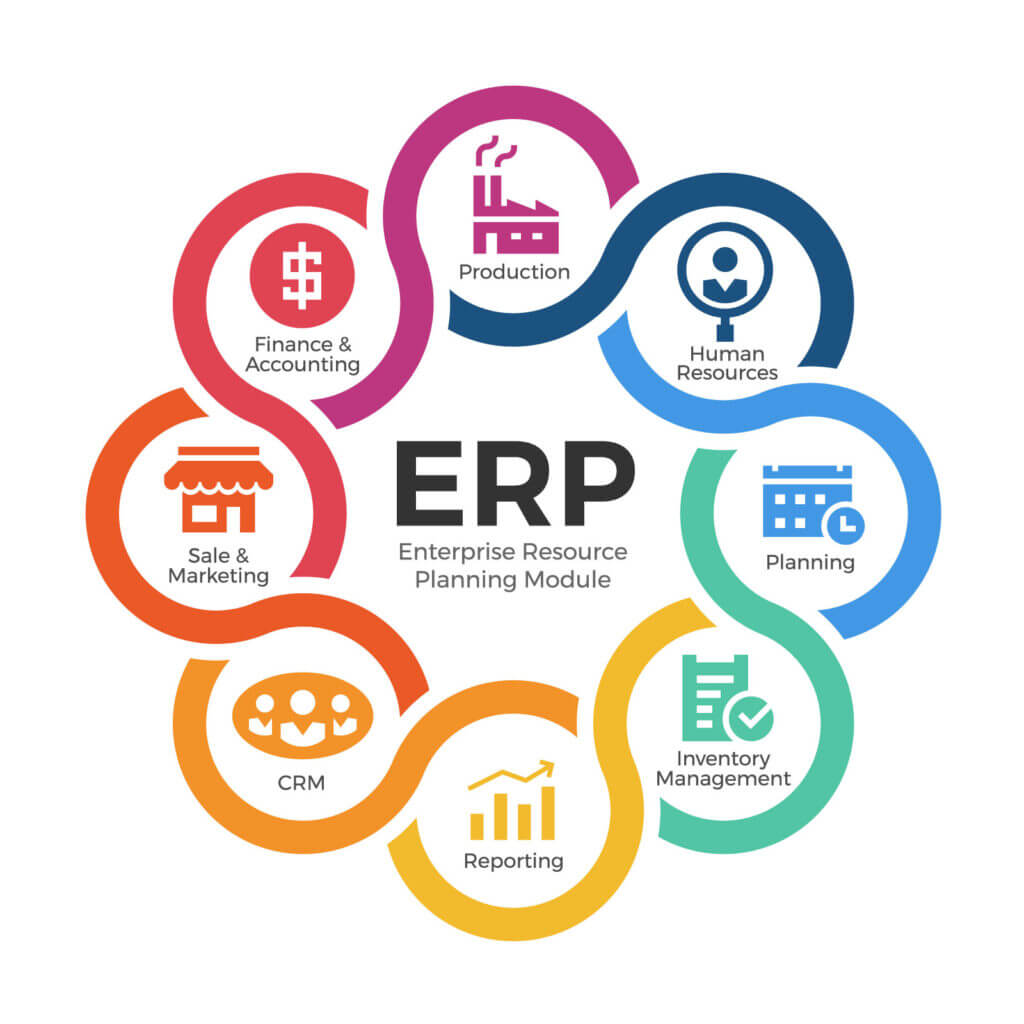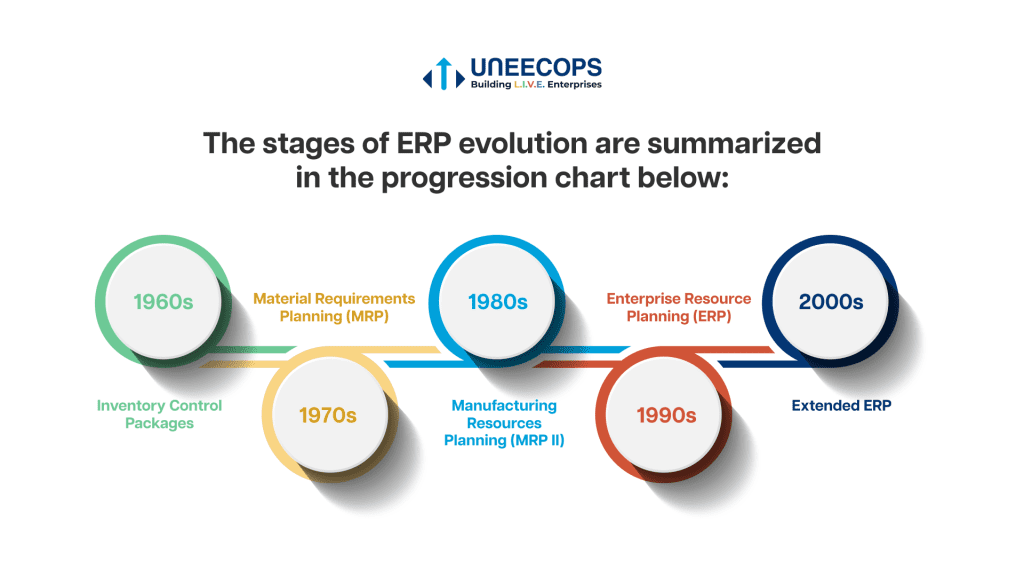Exploring the Power of Prolog ERP
Exploring the Power of Prolog ERP: Unlocking Efficiency and Optimization
Welcome to the world of Prolog ERP, where efficiency and optimization go hand in hand to streamline your business processes! For those looking to elevate their operations to the next level, Prolog ERP offers a comprehensive solution that can revolutionize the way you do business. From resource planning to data management, Prolog ERP is a powerful tool that unlocks the full potential of your organization. Join us as we explore the capabilities of Prolog ERP and discover how it can transform your business operations for the better.
Introduction to Prolog ERP
Prolog ERP is a comprehensive enterprise resource planning software designed to streamline and optimize business operations. It provides a centralized platform that integrates various departments within an organization, such as finance, human resources, procurement, and sales, into a cohesive system. By connecting these different functions, Prolog ERP enables better communication, data sharing, and collaboration among employees, leading to improved efficiency and productivity.
One of the key features of Prolog ERP is its modular structure, which allows businesses to tailor the software to meet their specific needs and requirements. This flexibility means that companies can start with a basic set of modules and add more as their operations expand and evolve. Whether it’s managing inventory, tracking sales orders, generating financial reports, or automating payroll processes, Prolog ERP has the tools to streamline these tasks and make them more manageable.
Another advantage of Prolog ERP is its scalability, making it suitable for businesses of all sizes – from small startups to large corporations. The software can grow with the organization, adapting to changes in the business environment and accommodating increased data volumes and user numbers. This scalability ensures that companies can continue to rely on Prolog ERP even as they expand and diversify their operations.
Prolog ERP also offers real-time insights and analytics, allowing users to monitor key performance indicators, track trends, and make data-driven decisions. By providing actionable intelligence, the software helps organizations identify areas for improvement, optimize processes, and stay ahead of the competition. With Prolog ERP, businesses can access up-to-date information and reports at their fingertips, enabling them to make informed choices and drive growth.
Furthermore, Prolog ERP is user-friendly and intuitive, with a customizable interface that can be tailored to individual user preferences. This ease of use ensures that employees can quickly adapt to the software and start reaping its benefits without extensive training or IT support. The software’s intuitive design and seamless navigation contribute to a smoother implementation process and faster return on investment for businesses.
In conclusion, Prolog ERP is a powerful tool for modern businesses looking to streamline their operations, improve efficiency, and drive growth. With its modular structure, scalability, real-time insights, and user-friendly interface, the software offers a comprehensive solution for managing various aspects of an organization. By harnessing the capabilities of Prolog ERP, businesses can optimize their resources, make informed decisions, and stay competitive in today’s fast-paced business environment.
Key Features of Prolog ERP
Prolog ERP is a comprehensive enterprise resource planning software that offers a wide range of key features to help businesses streamline their operations and improve efficiency. Some of the key features of Prolog ERP include:
1. Integrated Modules: Prolog ERP comes with a range of integrated modules that cover various aspects of business operations, including finance, human resources, manufacturing, sales, and supply chain management. This allows businesses to have a consolidated view of their operations and make informed decisions based on real-time data.
2. Customizable Dashboards: One of the standout features of Prolog ERP is its customizable dashboards, which provide users with a visual representation of key performance indicators and metrics. These dashboards can be tailored to meet the specific needs of different users, allowing them to easily track performance and identify areas for improvement. From sales figures to inventory levels, users can access a wealth of information at a glance.
3. Advanced Reporting: Prolog ERP offers advanced reporting capabilities that enable businesses to generate detailed reports on various aspects of their operations. Whether it’s financial reports, inventory reports, or sales reports, users can easily create customized reports to gain insights into their business performance. These reports can be exported in various formats for further analysis or sharing with stakeholders.
4. Automation Tools: Prolog ERP comes equipped with automation tools that help businesses automate repetitive tasks and streamline their workflows. From scheduling automated processes to setting up alerts and notifications, users can save time and improve efficiency by eliminating manual intervention in routine tasks. This not only reduces the risk of errors but also allows employees to focus on more strategic initiatives.
5. Scalability: Prolog ERP is designed to be scalable, allowing businesses to easily expand their operations and add new users or modules as needed. Whether it’s adding new departments, locations, or subsidiaries, Prolog ERP can adapt to the changing needs of a growing business. This flexibility ensures that businesses can continue to use the software effectively as they grow and evolve.
6. Mobile Access: Prolog ERP offers mobile access, allowing users to access the software and stay connected to their business on-the-go. Whether it’s checking inventory levels, approving purchase orders, or tracking sales performance, users can access Prolog ERP from their mobile devices anytime, anywhere. This flexibility enables employees to remain productive even when they are away from the office.
Overall, Prolog ERP offers a wide range of key features that help businesses manage their operations more effectively, improve decision-making, and drive growth. By leveraging its integrated modules, customizable dashboards, advanced reporting capabilities, automation tools, scalability, and mobile access, businesses can streamline their processes, optimize performance, and stay ahead of the competition.
Benefits of Implementing Prolog ERP
Prolog ERP is a comprehensive software system designed to streamline business operations and improve overall efficiency. By implementing Prolog ERP, companies can experience a wide range of benefits that can positively impact their bottom line. Here are some of the key advantages of utilizing Prolog ERP in your organization:
1. Improved Efficiency: One of the biggest benefits of implementing Prolog ERP is the significant improvement in overall efficiency. With all business processes consolidated into one platform, employees can access real-time data and streamline workflows, reducing the need for manual input and minimizing errors. This leads to faster decision-making, increased productivity, and ultimately, cost savings for the organization.
2. Enhanced Visibility: Prolog ERP provides a centralized view of all business operations, allowing managers to gain valuable insights into various aspects of the company’s performance. From sales and inventory to financial management and customer relations, Prolog ERP offers a comprehensive overview that helps identify key trends, opportunities, and potential challenges. This increased visibility enables better decision-making and strategic planning, ensuring that the organization stays competitive in today’s fast-paced business environment.
3. Scalability and Flexibility: One of the unique benefits of Prolog ERP is its scalability and flexibility. As your business grows and evolves, Prolog ERP can easily accommodate changes in size, scope, and complexity. Whether you need to add new users, integrate new modules, or expand into new markets, Prolog ERP can be customized to meet your specific needs. This adaptability ensures that your software solution continues to support your business goals and objectives, no matter how much your organization changes over time.
4. Streamlined Communication: Effective communication is crucial for any successful organization, and Prolog ERP helps facilitate better internal and external communication channels. With a centralized database that stores all relevant information, employees can easily share data, collaborate on projects, and communicate with customers and suppliers. This seamless integration of communication tools improves workflow efficiency, reduces misunderstandings, and enhances overall productivity within the organization.
5. Cost Savings: Implementing Prolog ERP can lead to significant cost savings for your organization. By automating repetitive tasks, streamlining processes, and reducing the need for manual data entry, Prolog ERP helps minimize operational costs and improve resource allocation. Additionally, the increased visibility and control over business operations provided by Prolog ERP can help identify areas for cost reduction, optimize inventory management, and maximize profitability in the long run.
Overall, the implementation of Prolog ERP can bring numerous benefits to organizations of all sizes and industries. From improved efficiency and enhanced visibility to scalability and cost savings, Prolog ERP offers a robust software solution that can drive sustainable growth and success for your business.
Prolog ERP Implementation Process
Implementing a Prolog ERP system is a detailed process that requires careful planning and execution. The implementation process typically consists of several key phases that help ensure a successful transition to the new system.
The first phase of the implementation process is the planning stage, where project managers work with key stakeholders to define project goals, scope, and timelines. During this phase, the project team will also conduct a thorough analysis of the organization’s current processes and systems to identify areas that will be impacted by the implementation of Prolog ERP.
Once the planning stage is complete, the next phase is the customization and configuration of the Prolog ERP system. This phase involves configuring the system to meet the specific needs of the organization, including setting up user roles and permissions, defining workflows, and integrating with other systems. Customization may also involve the development of new features or functionalities to address unique business requirements.
After the system has been customized and configured, the next phase is testing. During this phase, the project team will conduct various tests to ensure that the Prolog ERP system is functioning correctly and meeting the organization’s requirements. This may include system testing, integration testing, and user acceptance testing to ensure that all components of the system are working together seamlessly.
One of the most critical phases of the implementation process is training. Proper training is essential to ensure that end-users are comfortable using the new Prolog ERP system. Training may be conducted in a variety of formats, including in-person workshops, online tutorials, and self-paced learning modules. The goal of training is to empower users to leverage the full capabilities of the system and maximize their productivity.
Once the system has been tested and users have been trained, the final phase of the implementation process is Go-Live. This phase involves transitioning from the old system to the new Prolog ERP system and ensuring that all users are up and running on the new platform. During this phase, project managers will closely monitor the system to address any issues or concerns that may arise and provide ongoing support to users as needed.
In conclusion, the Prolog ERP implementation process is a detailed and complex endeavor that requires careful planning, customization, testing, training, and Go-Live. By following the key phases outlined above and working closely with project stakeholders, organizations can successfully implement Prolog ERP and realize the full benefits of this powerful system.
Case Studies of Successful Prolog ERP Integrations
Prolog ERP has been successfully integrated into various businesses, providing efficient solutions to streamline operations and improve productivity. Here are five case studies of successful Prolog ERP implementations:
1. ABC Manufacturing Company: ABC Manufacturing Company, a leading manufacturer of automotive parts, implemented Prolog ERP to centralize their production, inventory, and sales processes. With Prolog ERP, they were able to track their supply chain in real-time, optimize their inventory levels, and improve forecasting accuracy. As a result, ABC Manufacturing Company saw a 20% increase in operational efficiency and a 15% reduction in lead times.
2. XYZ Retail Chain: XYZ Retail Chain, a popular retail chain with multiple locations, adopted Prolog ERP to streamline their accounting, human resources, and customer management systems. By integrating Prolog ERP, they were able to automate their payroll processes, optimize their inventory management, and personalize their customer interactions. This led to a 25% increase in sales and a 30% improvement in customer satisfaction ratings.
3. LMN Healthcare Services: LMN Healthcare Services, a healthcare provider specializing in elderly care, implemented Prolog ERP to enhance their patient care, billing, and compliance processes. With Prolog ERP, they were able to consolidate patient records, automate billing procedures, and ensure regulatory compliance. As a result, LMN Healthcare Services achieved a 40% reduction in billing errors and a 20% improvement in patient satisfaction scores.
4. PQR Tech Solutions: PQR Tech Solutions, a technology consulting firm, integrated Prolog ERP to streamline their project management, resource allocation, and invoicing systems. By using Prolog ERP, they were able to create project timelines, allocate resources efficiently, and generate accurate invoices in a timely manner. This resulted in a 15% increase in project completion rates and a 10% increase in revenue for PQR Tech Solutions.
5. EFG Food Corporation: EFG Food Corporation, a food distribution company, opted for Prolog ERP to optimize their supply chain, distribution, and quality control processes. With Prolog ERP, they were able to track their inventory levels, manage their distribution network effectively, and monitor quality control measures in real-time. This led to a 20% reduction in logistics costs and a 10% increase in product quality for EFG Food Corporation.
Overall, these case studies illustrate the versatility and effectiveness of Prolog ERP in various industries, showcasing the potential for businesses to achieve significant improvements in their operations and profitability.
Originally posted 2025-10-13 04:37:10.







